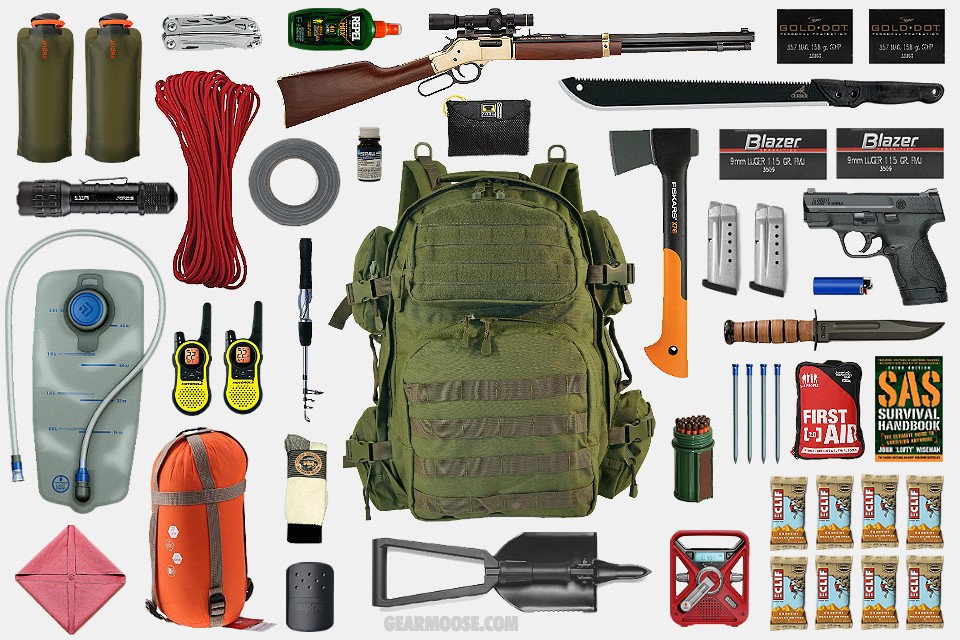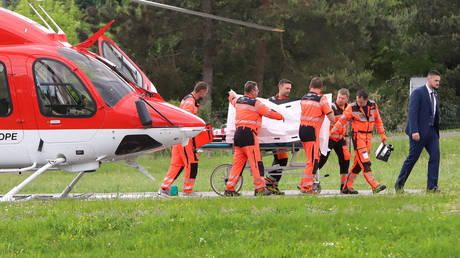Always bring a bug-out bag, but learn how to survive without one when SHTF

(Natural News) Bug-out bags (BOB) are a ubiquitous part of survival preps. But that doesn’t mean you can be complacent if you have a BOB.
After all, when SHTF and you lose your gear, your wits and survival skills are going to be the ones that will help you survive, not your tools. (h/t to ModernSurvivalOnline.com)
Why do you need a BOB?
A well-prepared BOB has almost everything you need to survive, with some exceptions. You need to choose each item carefully because you can’t carry a bag that’s too heavy, especially if you’re in a hurry to reach your bug-out location.
Once your BOB is packed, you must hone your skills to ensure that you can deal with whatever happens when disaster strikes.
Now comes the hard, but not impossible, part: learning how to survive if you suddenly lose your meticulously-chosen gear.
Dealing with a lost BOB
Since your BOB has what you need to survive for at least 72 hours after SHTF, it can be scary to think about what you’re going to do if you lose your gear.
Keep in mind that relying too much on gear or equipment will only hinder your progress as you prep.
It doesn’t matter how or why you lose your BOB. The important thing is ensuring that you can rely on your wits and skills to survive even with just a pocketknife in your hand.
Start by honing your first tool: your brain. While things are quiet, practice and prepare for a scenario that you might have to face without a BOB.
Focus on a well-rounded plan and don’t get stuck on hiding a second BOB or supplies. Try “zero extra gear” solutions: Improvisation, foraging/scavenging (or sourcing) and primitive skills. (Related: 5 Skills you just can’t live without when you bug out.)
It’s normal to feel scared when you lose your gear after SHTF, but you must have a plan and learn new skills so you can stay alive, such as:
- Basic first aid
- Finding and purifying water
- Fire-starting
- Fishing
- Foraging and identifying poisonous plants
- Navigation without a map and compass
- Shelter building
Knowing these essential survival skills will help set your mind at ease even if you’re only left with what you have in your pockets.
Improvise or learn how to go without
When SHTF, you can improvise with scavenged materials from the wild or an urban setting:
- Metal can be turned into different cutting tools, fishing lures or reflectors.
- Plastic sheeting can be used as a wind- and waterproof barrier, insulation or as a water catchment.
- Rubber is flammable, making it perfect for firestarting or emergency signaling.
Learn how to solve common problems by coming up with creative uses for items that you can salvage after SHTF.
Prep first-line gear
Those in the military always carry first-line gear, which are items that you wear into “lines” based on their importance and position on your equipment.
For example, first-line gear covers the bare minimum you need to keep on your person at all times, such as in your belt and pockets. In military parlance, your second-line gear includes the main harness or vest and all equipment plus weapons and ammo, while your third-line gear is heavier sustainment gear, with other equipment carried in the pack.
Prep an everyday carry kit (EDC) with a sturdy, high-quality pocket knife and a firearm, along with a tiny compass and a length of versatile duct tape. Keep these items in a sturdy metal tin along with items for a basic survival kit with:
- A fire-starting kit
- Fishing/trap kit
- Mini tool
- Minor first aid supplies
- Signal mirror
Setting up caches
A cache can help address the loss of your BOB and other supplies. Hide your cache in a secret location known only to you. Prep a simple stash of gear in a sturdy, waterproof container.
When prepping your cache, include the same items in your BOB, with extra food supplies so you have provisions if you need to travel far to reach the cache. Regularly check your cache and rotate perishable items in your BOB.
It pays to cover all your bases with a BOB. Just don’t be too dependent on your tools and hone your survival skills before SHTF.
Sources include:



